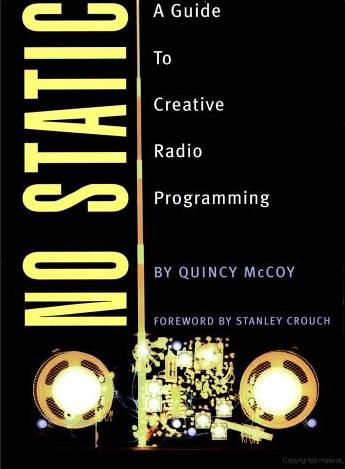|
Chapter 11 - Buzz and
Batt on the Creative Ride
When I joined the staff of WAVZ in New Haven, John Long, the PD gave me
an aircheck of a station in Pittsburgh, Pennsylvania. He wanted me to listen
to it. He insisted that I pay special attention to a jock named Batt Johnsonin
order to get a better idea of how he wanted me to sound. I was blown away.
The station was called 13Q - so simple, so cool - and there were no jingles.
The jocks, somehow, magically tied everything together. They were catalysts
who regulated the momentum of the station, who controlled the flow of energy
When I returned the tape to Long and told him how impressed I was with
Johnson and the station, he told me that 13Q was programmed by Buzz Bennett,
a new breed of programmer who was revolutionizing the industry. It wasn't
long before I discovered just what he was talking about. Bennett's combination
of music. money and magic altered the radio landscape forever.
"Buzz was a god," says Batt Johnson. A veteran broadcaster, acting coach,
speaking coach, and communications professor, Johnson first met Buzz Bennett
in 1968 while working for KDKD-FM, an automated rock radio station in San
Diego, California.
"My job was to change the reels of tape," Johnson remembers. "Buzz was
the PD of KGB, AM sister station. We became friends, then roommates, and
we spent a lot of time studying Eastern religion and philospohy, reading
metaphysical books, and ahving lengthy discussions about all of it. I knew
him as a leader, teacher, and a mystic."
Their friendship transcended business. In fact, Johnson now confesses,
"When Buzz left KGB and crossed the street to KCBQ, Charlie Van Dyke replaced
him as program director at KGB, and I became a spy for Buzz. Whenever I
heard anything about Charlie's promotions or programming plans, I'd call
Buzz and tell him." Johnson was rewarded with his first full-time on-air
job/ "I did overnights on KCBQ, and was assistant production director under
Bobby Ocean," he recalls. "I was at KCBQ for a year. Then Buzz and our
general manager got into a fracas, and Buzz got fired. About ten or fifteen
people quit because he was let go. I've never seen anything like that before
or since in my career. It also speaks volumes about Buzz's charisma, charm,
and leadership powers."
Bennett's programming philosophy began at KCBQ, then moved across the desert
to Phoenix, Arizona, at KUPD and KRIZ, and finally arrived on the East
Coast in the form of 13Q Pittsburgh. "Pittsburgh is one of my hometowns,"
says Bennett. "A lot of my relatives lived - still live - there. When I
started 13Q, the competition at KQV thought I was just a West Coast hippie.
But I knew Pittsburgh."
Buzz also knew who he wanted on his staff. From WPGC in Washington, D.C.,
he hired Dennis Waters for middays and Mark Driscoll for production director
and afternoon drive. From WKBW in Buffalo he hired the fastest-talking
mouth in the East, Jackson Armstrong. "I wanted a madman on the air at
night," says Bennett. "Armstrong was not your normal disc jockey. When
I heard him on the air fast rapping and screaming 'your leader,' I called
the request line and hired him on the spot."
The rest of the lineup included Sam Hall from KDKA (the heritage power-house
station in Pittsburgh), Johnson, and Dave Brooks. Buzz was now VP of programming
for Heftel Broadcasting. He hired Dave Daniels as PD of 13Q.
"We all arrived in Pittsburgh about three weeks before the staion kicked
off," Buzz say. "We were staying at the Marriott, having strategy meetings
every day. We'd listen to the competition and dissect the format, playlist,
and promos. We would also write promo ideas, work on our format, and create
visual logos for the playlist."
Johnson remembers helping out on research" "Buzz would send us out around
the city of Pittsburgh with tape recorders, talking to people on the street,"
he says. "We asked them what they thought of Pittsburgh radio. What did
it need? What if a radio station came to town and gave away ten thousand
dollars? Would you listen if a station was giving away fifty thousand dollars?
We'd take all this material back to the radio station and make promos out
of it. These 'people promos' were powerful - regular folks talking to regular
folks."
"We ran these people promos about this station, 13Q, that didn't exist
yet, on WKTQ, which was still operating as an all-news station. We started
with a thirteen thousand dollar cash call jackpot. All the listeners had
to do was answer their phone - 'I listen to the new sound of 13Q' - and
win thirteen thousand dollars. The phones started ringing at the news station
instantly. In other words, we had Pittsburgh's attention before we played
a single record. It was a combination of the cash call jackpot and the
city of Pittsburgh talking to the city of Pittsburgh."
In it's first book, 13Q pulled a 15.7 share of the audience. With the people
promos running day and night, the listeners became the stars of the stations.
"That was his genius," says Johnson. "Buzz really knew how to take the
listeners and use them s the messenger." But Buzz's work wasn't done. His
contract with Cecil Heftel was a package that included two stations. Next
up for Buzz was to turn a 100,000-watt FM in Miami into a winner. |

